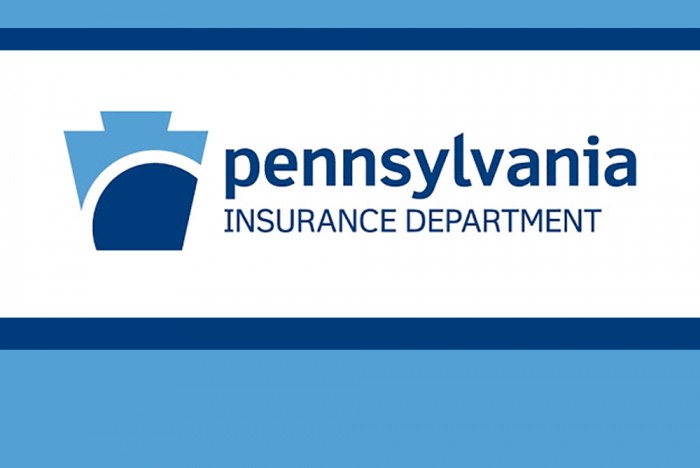OMAP Offers Guidances On MATP
The Office of Medical Assistance Programs (OMAP) has released two separate guidances related to Medical Assistance Transportation Program (MATP) services during the Corona Pandemic. The purpose of these communications are to advise all county administrators, brokers, and all contracted transit agencies (collectively referred to as MATP agencies) of the precautions necessary to ensure safe provision of non-emergency medical transportation services to Medical Assistance beneficiaries while the Governor’s Proclamation of Disaster Emergency issued on March 6, 2020, remains in effect.
Delay Approved for Implementation of Family First Prevention Services Act Until July 2021
Harrisburg, PA – The Wolf Administration today announced that approval was received from the United States Department of Health & Human Services’ Administration for Children and Families to delay opting into full implementation of the Family First Prevention Services Act until July 1, 2021, to give child welfare stakeholders the necessary time to implement these critical reforms.
The Family First Prevention Services Act is a federal law that prioritizes providing services to children in families in the least restrictive manner and with their families as much as safely possible. It allows states to use federal payments for trauma-informed evidence-based prevention services to allow children who may otherwise be placed in congregate settings care to stay with their parents or relatives. In the event placement outside the home occurs, the law directs federal funding towards family-like settings or other specialized settings that are best suited to a child’s individual needs.
The additional time will allow for interested providers for specialized settings to apply or to adjust their programs under the Family First Prevention Services Act. Specialized settings are trauma-informed child residential facilities or supervised independent living programs specializing in providing care and treatment for children and youth with special circumstances.
Furthermore, the delay will support our efforts to build additional evidence-based prevention programs used by counties in a way that safely keeps families together, allows for staffing and data needs to be met, and will not result in the loss of federal funds.
DHS previously released a bulletin with guidance and requirements for providers that wish to become a specialized setting.
RCPA will continue to be represented on the Statewide Family First Task Force and will continue to update members on the new implementation process, timelines, and progress status. If you would like to discuss your organization’s Family First plan or if you have questions, please contact RCPA Children’s Division Director Jim Sharp.
ADvancing States Announces Release of ConnectToCareJobs.com
CMS Releases Updated COVID-19 Resources
Today, the Centers for Medicare and Medicaid Services (CMS) released updated information on recent actions and resources specific to the COVID-19 pandemic.
CMS Continues to release waivers for the health care community that provide flexibilities needed to take care of patients during the COVID-19 public health emergency. The additional blanket waivers are provided here.
CMS updated a video that answers commonly asked questions about the expanded Medicare telehealth services benefit.
They also published an MLN Matters article which provides information for pharmacies and other suppliers that wish to enroll in Medicare temporarily as independent clinical diagnostic laboratories, to assist with addressing needs for COVID-19 testing.
Additional flexibilities offered to states to address the coronavirus pandemic. In addition to the following waivers, a toolkit was developed to expedite the application and review of each request.
ODP Announces Fiscal Year (FY) 2020-2021 Renewal Guidance
ANCOR/NatCon Advocate for Nonprofits with More Than 500 Employees
ANCOR is partnering with the National Council of Behavioral Health to get the eligibility cap lifted for nonprofits providing I/DD, Substance Abuse, and Mental Health services. Here’s the ANCOR/NatCon issue brief with the “ask” we sent to Congress.
As nonprofit providers of intellectual and developmental disability services and supports, you are on the front lines of the novel, COVID-19 pandemic. While Congress has been making strides to support small businesses, the Coronavirus Aid, Relief, and Economic Security (CARES) Act excluded from eligibility for the Small Business Administration’s (SBA) Paycheck Protection Program (PPP) nonprofits who employ more than 500 employees.
This exclusion has led to your organizations having to make hard decisions, ranging from furloughs, reducing services, experiencing exploding costs with no assurance of reimbursement. This is unacceptable – people with disabilities cannot be forgotten at this time of crisis. Now is the time to act.
A Message from Deputy Secretary Ahrens to CPS & Employment Service Providers
Dear friends and colleagues,
Thank you so much for your overwhelming response to our invitation to submit innovative program models you have developed for community participation supports and employment opportunities. The energy, enthusiasm, and innovation you are establishing is impressive.
Within ODP we have brought together a review committee that will begin to work on selection of proposals on a regional basis, and contacting agencies to begin developing the webinar series. Due to the overwhelming response, we are closing submissions as of this date. Please remain patient with us while we conduct this review. We will be in touch with the contacts specified in the response form you completed as we move forward this spring and early summer.
Thank you for all your work and dedication to the individuals and families we serve.
Sincerely,
Kristin Ahrens
Deputy Secretary
Risks, Increased Liability with Non-Compliance of Business Closure Orders
FOR IMMEDIATE RELEASE
May 11, 2020
Harrisburg, PA – Pennsylvania Insurance Commissioner Jessica Altman today reminded businesses of the importance of complying with Governor Tom Wolf and Department of Health Secretary Rachel Levine’s orders – for counties in both the red and yellow phases.
In addition to the critical public health objectives, Commissioner Altman warned non-compliant businesses defying the governor and secretary’s business closure orders that many insurance policies contain provisions that exclude coverage for businesses or individuals engaging in illegal acts or conduct. These exclusions may apply to property coverage, liability coverage, advertising injury coverage, and a host of other essential coverages.
“Businesses and residents rely on insurance coverage to protect them from liability, pay for covered losses, and compensate those who may be injured or harmed,” said Altman. “It is the duty of every business and resident in Pennsylvania to ensure that they and the public at large are provided with the maximum level of protection afforded by insurance. Any actions that could potentially create coverage gaps are the antitheses of the civil duty required of all residents during these times of emergency.”
This reminder is offered to all Pennsylvania businesses and residents, regardless of in what county they reside. The department strongly encourages businesses or residents who have questions or concerns regarding insurance coverage during the phased reopening of businesses in this commonwealth to reach out to their insurance carrier to discuss concerns.
Find more information on Gov. Wolf’s latest orders here.
FAQs for businesses in each phase can be found here.
MEDIA CONTACT: Thaisa Jones, thajones@pa.gov
# # #
IRFs Receive Clarification on Virtual Team Meetings & COVID-19 Coding
Late this afternoon, the Centers for Medicare and Medicaid Services (CMS) issued new guidance to inpatient rehabilitation facilities (IRFs) that provides additional clarification on flexibilities being afforded in response to the COVID-19 pandemic and also confirms that team meetings can be performed virtually. CMS will allow all forms of social distancing precautions when holding interdisciplinary team meetings and stressed electronic or virtual team meetings would be the safest during this pandemic.
In addition to CMS exercising their regulatory flexibility to waive the 60 percent rule, they are also waiving IRF coverage and classification requirements if the following criteria are satisfied:
- Patient is admitted to a freestanding IRF to alleviate acute care hospital bed capacity issues
- IRF is located in an area that is in Phase 1 or has not entered Phase 1 as noted in Guidelines: Opening Up America Again
CMS also provides additional information on the codes that should be used when IRFs are utilizing flexibilities that CMS has issued. CMS directs IRFs to add the following letters at the end of the unique hospital patient identification number (or medical record number in the IRF) to identify the patients eligible for each waiver:
- D – 60 percent rule
- DS – Coverage and classification requirements
- DDS – Both 60 percent rule and coverage and classification requirements


















